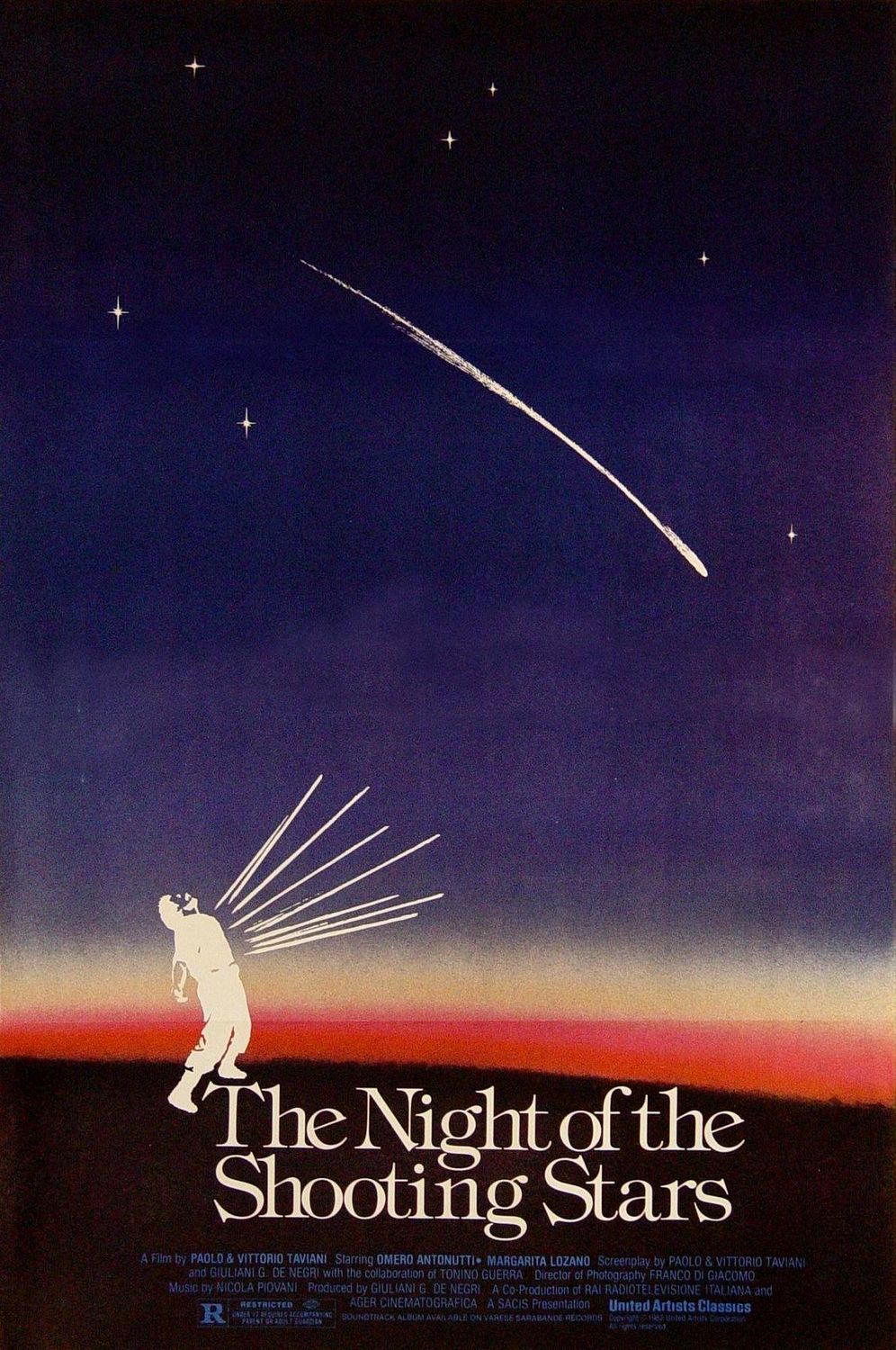

Runtime
Category
Language
Director
Actors
The Night of the Shooting Stars
Watch it Later
Watch it On
What's it About
Her memory triggered by the sight of a shooting star, a mother (Lozano) recounts the fateful exodus she experienced as a six-year-old girl: on the eve of the American liberation during World War II, residents of a Tuscan village, skeptical of Nazi promises to keep them safe inside a cathedral, head into the countryside in search of anti-fascist Italian partisans and the advancing Allies. Led by an elderly peasant, the group forms an intimate bond that transcends social hierarchy.
Why we love it
Like “Cinema Paradiso,” the Taviani brothers’ semi-autobiographical “Stars” deals in nostalgia, fantasy, and childhood memories; in this case, of a tumultuous episode in the life of a Tuscan village. Its moving depiction of their flight from certain death on a mythic, time-honored occasion — “La notte di San Lorenzo” (or “the night of the shooting stars”) — deals with a number of universal themes: love and politics, sex and death, hope and survival. The Tavianis bring a magical and ultimately life-affirming quality to this remarkable wartime reminiscence.
